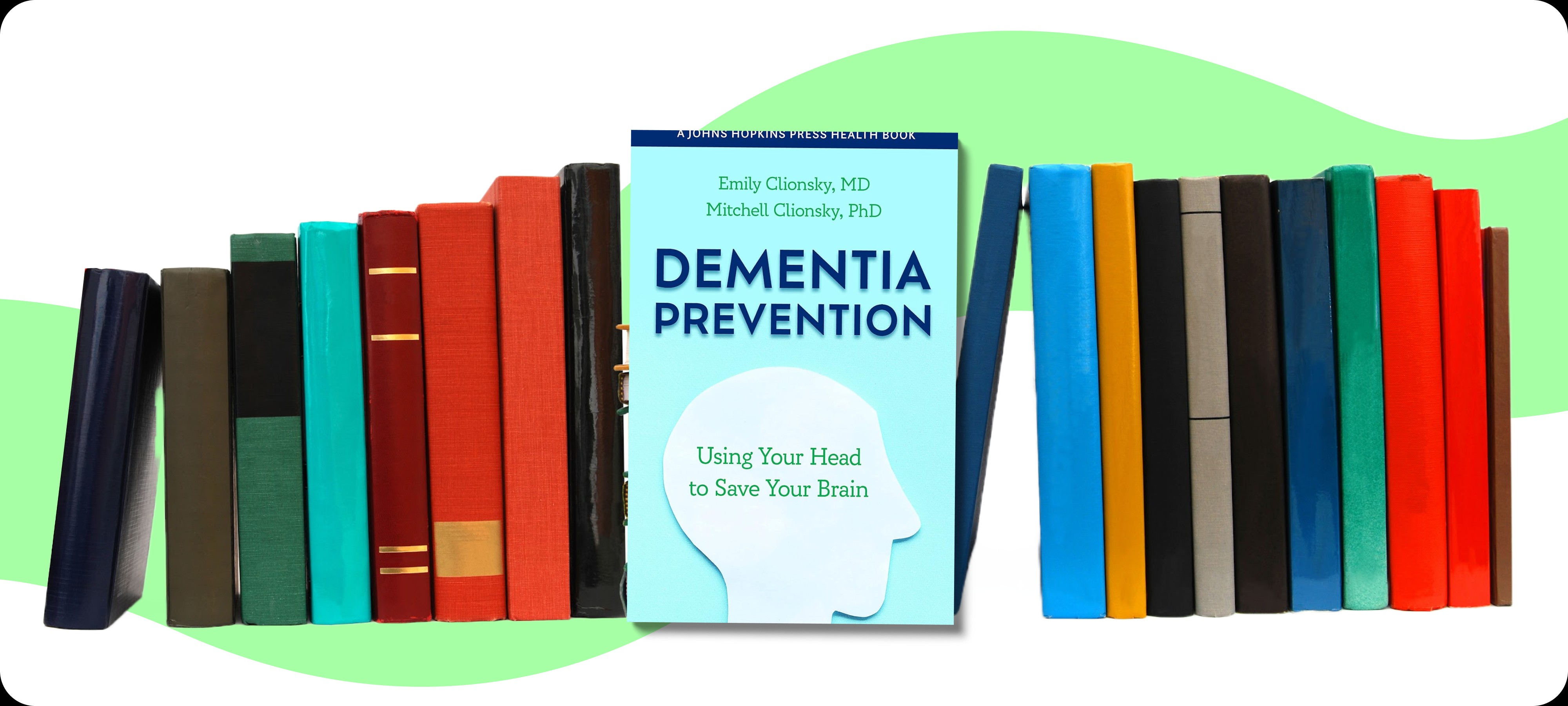“As important as time management may be, the art of mind management is a lost ability that very few study and even fewer are able to teach. Dr. Leaf is one of the few who is able to teach this lost art.” – Patrick Bet-David, author of #1 Wall Street Journal bestseller 'Your Next Five Moves'
Have you ever felt like your mind went blank? How often do you feel discouraged, unfocused, or overwhelmed? Do you often begin your day feeling tired and depressed? Does anxiety about what lies ahead trouble you? Are there unhealthy patterns that you cannot break and continue repeating over and over again?
If you answered yes to any of these questions, you should consider reading ‘Cleaning Up Your Mental Mess’ by Caroline Leaf. In this book, Dr. Leaf will ‘show you how to become the interior designer of your mind and brain in five simple steps, using the principles of neuroplasticity.’
Author’s background

Dr. Caroline Leaf is an expert in the field of communication pathology and neuroscience. She is dedicated to helping individuals understand the power of the mind in transforming the brain, managing chaotic thoughts, and achieving mental well-being.

Dr. Leaf has authored several books, including ‘Switch On Your Brain,’ ‘Think and Eat Yourself Smart,’ ‘The Perfect You,’ and ‘Think, Learn, Succeed.’ The scope of her work also includes numerous journal articles, impactful videos, a highly-rated podcast, and TV episodes.
She actively conducts research and shares her knowledge through presentations at academic, medical, corporate, and neuroscience conferences, as well as in religious institutions worldwide.
What is the book about?

The book is divided into two parts. The first one, titled ‘The Why and How,’ explains what happens with our lifestyle when our minds are messed up and dwells on the notion of mind management and how it can be learned and constantly upgraded as we grow. The first part also presents the concept of Neurocycle as a solution to cleaning up your mental mess.
The Neurocycle is a five-step approach designed to assist individuals in effectively managing their thoughts, emotions, and choices.
The second part of the book is more practical and explains how Neurocycle can be applied in various life aspects, including habit formation, mental toughness development, trauma detoxification and many others.
According to Dr. Leaf, the Neurocycle involves five stages: gathering awareness, reflecting, writing, rechecking, and actively engaging in the process of addressing and controlling negative thoughts and behaviours.
Below you may see an example of how the Neurocycle can be utilised to improve sleep quality and get rid of intrusive thoughts that may haunt one when trying to fall asleep.
1. Gather: Sleep preparation begins in the morning, which may seem surprising. How you manage your thoughts from the moment you wake up affects your brain’s chemistry, sleep-wake cycle, and overall energy. An unorganised mind leads to disordered sleep. Take a moment and ask yourself questions like: Are you still feeling tired? Did you wake up feeling anxious or panicked? You may also reflect on your dreams.
2. Reflect. Think about what captures your attention when you wake up. Are you focused on the challenges and negative aspects of the day? Or are your thoughts scattered and chaotic, filled with fragments of dreams, images from TV, and unresolved thoughts? What occupies your mind? Are you feeling anxious? What are you looking forward to doing today?
3. Write. If you do not catch your thoughts, with their interwoven emotions, after you wake up, this may lead to a messy day ahead. So, take a moment to think, speak out loud, or quickly write down your thoughts in a journal next to your bed.
4. Recheck. Take a moment to breathe in and out slowly, and replace negative thoughts with positive ones. For instance, say to yourself, ‘I’ll do my best, and it’s okay if I don’t finish all my tasks,’ instead of saying, ‘I have too many things on my plate!”
5. Active Reach. Decide how you want to approach the day. you may do these by using these morning Active Reach reminders:
Take a moment to write down five things you are proud of to start your day positively.
Instead of focusing on tasks, think about the person you want to be and how you want to feel throughout the day.
Write down five things that make you feel grateful.
Even though the Neurocycle may look like too simple in order to be effective in bringing health benefits, Dr. Leaf proves this belief wrong. In fact, the Neurocyclereduced depression and anxiety of study participants by 81%. It is also capable of improving various health aspects, such as sleep quality, nutrition, and immunity.
Table of contents

- Cover
- Endorsements
- Half Title Page
- Title Page
- Copyright Page
- Dedication
- Preface
- Acknowledgments
- Part 1 The Why and How
- 1. What Happens When We Don’t Use Our Minds Correctly
- 2. What Is Mind-Management and Why Do We Need It?
- 3. Why the Neurocycle Is the Solution to Cleaning Up Your Mental Mess
- 4. The Research 79
- 5. How Can All This Science Help You? 105
- 6. What Is the Mind? 131
- 7. The Interconnected Mind
- Part 2 The Practical Application of the Neurocycle
- 8. The 5 Steps of the Neurocycle
- 9. Directing Your Brain for Change
- 10. Why It Takes Sixty-Three Days of Neurocycling to Form a Habit
- 11. Neurocycling to Build Your Brain and Develop Mental Toughness
- 12. Neurocycling to Detox Trauma
- 13. Neurocycling to Break Bad Habits and Build Good Lifestyle Habits
- 14. Neurocycling as a Daily Mind-Management Routine for Cleaning Up the Mental Mess
- Appendix A: The Geodesic Information Processing Theory
- Appendix B: The Metacog
- Notes
- About the Author
- Photo Insert
- Back Ads
- Back Cover
Key takeaways from ‘Cleaning Up Your Mental Mess’

1A healthy lifestyle begins with managing your mind
A messy mind can have detrimental effects on your well-being. Constantly battling negative thoughts, anxiety, or depressive feelings results in the accumulation of toxic stress. This not only affects your biochemistry and brain function but also raises the risk of neurological disorders like dementia. Additionally, it weakens your immune system, making you more susceptible to illnesses.
Numerous studies have shown that nearly 90% of conditions such as cancer, diabetes, and heart disease are caused by toxic stress.
You can take over the loop of being constantly exposed to stress by practising mind management through the Neurocycle. With time and effort, mind management can even prevent negative thoughts from arising altogether, fostering resilience in the face of life’s challenges.
2Better sleep, eating, and exercise habits can be achieved through mind-management
The state of your mind and how you manage it can greatly impact your sleep, food choices, and exercise habits. Pathologising sleep or constantly worrying about it can have a negative impact on your overall well-being. The same can be applied to eating and exercising habits.
Taking steps to manage your thoughts and emotions through the Neurocycle can help improve your sleep quality and reduce stress and anxiety. Similarly, being mindful of your food choices and eating real food mindfully can contribute to a healthier lifestyle. Additionally, incorporating regular exercise and movement into your routine can have numerous benefits for cognitive function, mood, and overall health.
By using the Neurocycle and practising mind management, you can make positive changes in these areas of your life. The book provides examples of the Neurocycle patterns you may use to improve these lifestyle aspects as well as questions you may ask yourself in order to be more mindful about your choices.
3Our brains and blood are negatively affected by unmanaged toxic stress
Unmanaged toxic stress can have a significant impact on both mental and physical health. Elevated levels of cortisol and homocysteine in the blood are associated with unmanaged toxic stress and can increase the risk of various health issues, including cardiovascular problems, immune system disorders, and neurological conditions like dementia.
However, the study showed that by using mind-management techniques, specifically the Neurocycle, participants were able to improve their homocysteine and cortisol levels. This indicates that managing toxic stress can not only reduce the risk of mental health problems but also potentially lower the risk of other health issues. This finding highlights the importance of addressing and managing toxic stress for overall well-being.
Overall rating & strengths and weaknesses, according to readers’ reviews

Strengths
Delves into the scientific aspects, making it appealing for readers who enjoy a more research-oriented approach. However, it is hard to name this book a well-balanced read as for some readers it appears to be too heavy on science.
Provides a clear strategy, backed by clinical trials, consisting of five steps from toxic thought to beneficial action.
Offers suggestions and examples from the author’s own life, helping readers understand and implement the strategies effectively.
Covers a wide range of challenges in life, such as depression, negative thoughts, and mindset, offering practical tools for addressing them.
Weaknesses
The book is heavy on science, making it unsuitable for readers new to the topic or those seeking a quick self-help guide.
The book heavily promotes the author’s app and other books, giving it a commercial feel rather than providing original insights.
Best quotes from ‘Cleaning Up Your Mental Mess’

“We all know sleep is really important. However, research also suggests there’s a huge cost to pathologizing it. This means that worrying about sleep and identifying and labeling yourself as a poor sleeper may be worse than not sleeping.”
“Sometimes poor sleep is inevitable, and that’s not necessarily a catastrophe. We have the ability to handle sleepless nights now and then, and some people genetically just need less sleep. It’s also better to focus on how many sleep cycles you have in a week versus sleep hours in a night.”
“As I’ve mentioned before, the 5 Steps are kind of like doing your own brain surgery. As you direct your mind-in-action, you change your brain and mental space for the better, getting rid of toxic thoughts and building good, healthy thoughts and habits.”
Final takeaway

‘Cleaning Up Your Mental Mess’ by Dr. Caroline Leaf is a powerful guide for those seeking to understand and improve their mind management skills. The book offers a comprehensive strategy, the Neurocycle, which consists of five steps to effectively manage thoughts, emotions, and choices.
The book is best suited for readers who are interested in delving into the science behind mind management and are willing to invest time and effort in applying the strategies.
Where to buy
You may purchase on Amazon at the best price. It is available in paperback, hardcover, spiral bound, audio and Kindle versions, so you may choose an option that appeals to you the most.
Receive Exclusive Tips & Weekly Digest – subscribe to our newsletter






